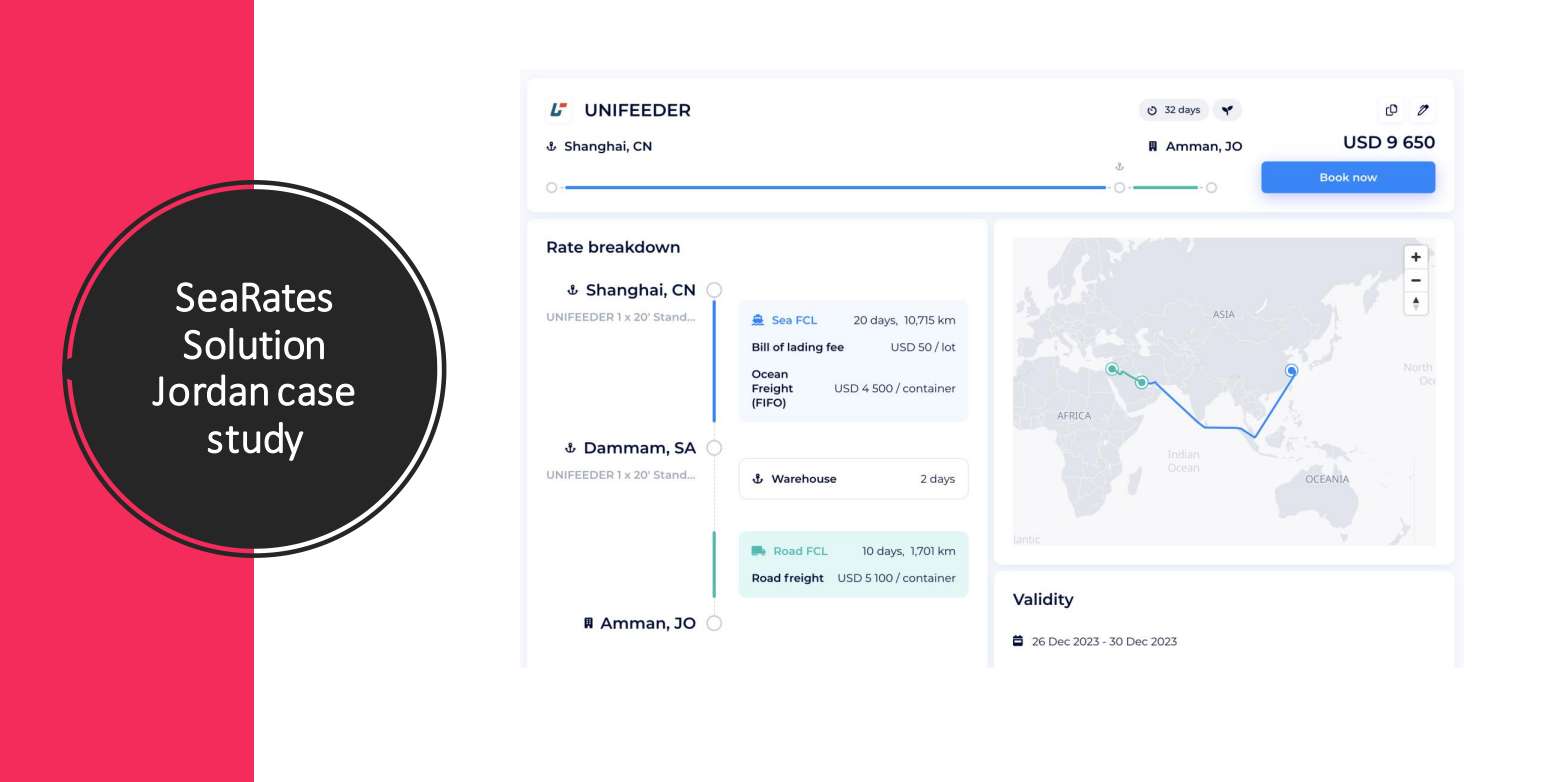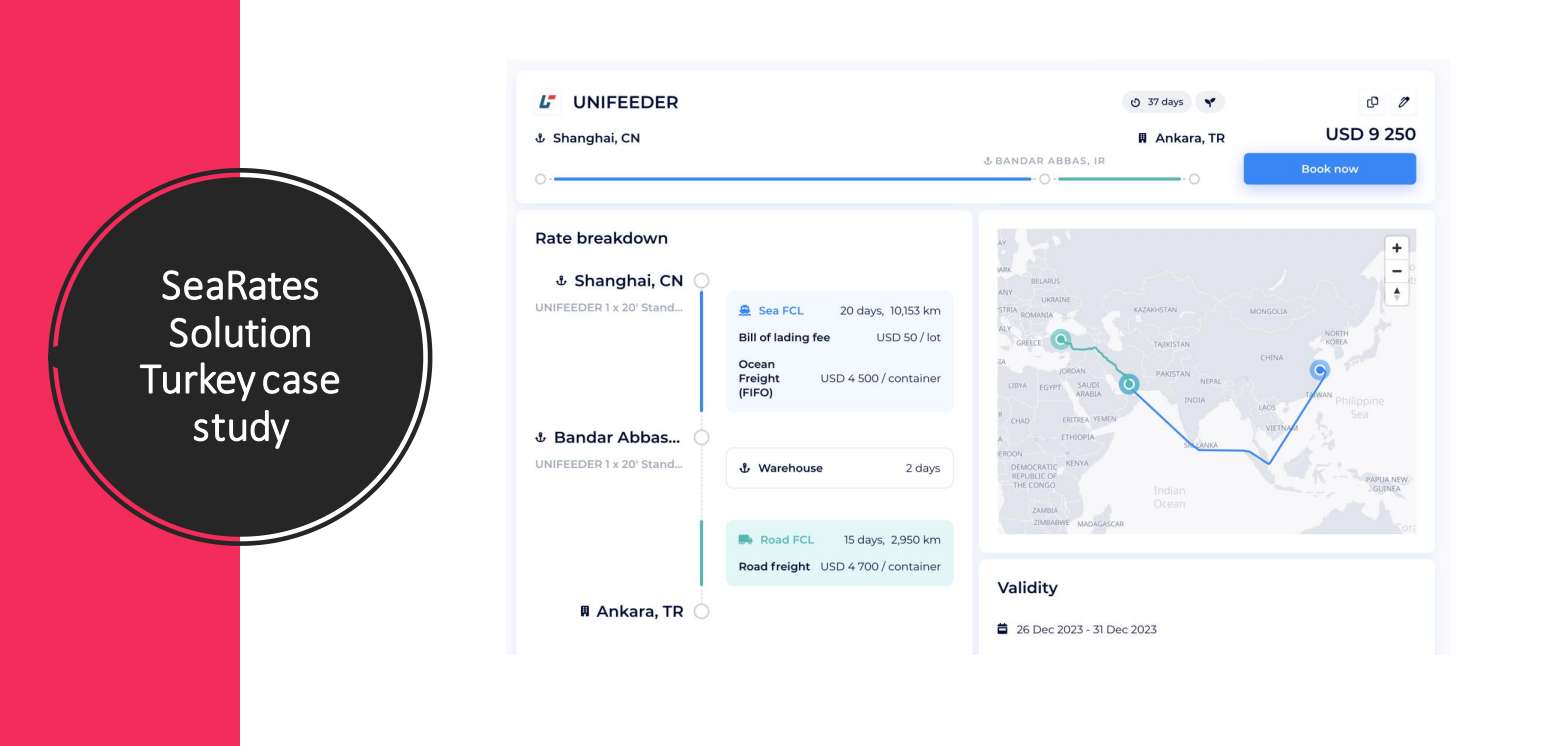
Navigating Red Sea & Suez Canal Disruption
December 15, 2023, was marked by a significant threat to the safety of cargo shipping in the Red Sea, namely through the Suez Canal, due to increased Houthi threats against container vessels in the area. This disruption has had a severe impact on global trade, affecting the flow of goods and services worldwide. The international community must cooperate to address this crisis and ensure the security of maritime routes. The disappointing chronology shows attacks on Israeli-affiliated vessels at the beginning and later on any vessels shipping through the Bab el-Mandab Strait, the Indian Ocean route to the Red Sea to the Suez Canal and the Mediterranean Sea, which is Europe’s strategic trade link to East and South Asia and Australia as it has happened with Maersk and the damaged Al Jasrah vessel of Hapag-Lloyd.
The Digital Freight Alliance is determined to secure any of your maritime logistics operations in any area of the world that is strategically important to you. For this reason, the DFA/SeaRates Open-Discussion webinar was held. The urgent need for discussion and the basic information on the subject of conversation within the freight forwarding community are outlined below. The industry’s representatives and global suppliers, together with Stefan Rogovskiy, CEO of SeaRates, and Stanislav Salamakha, Logistics Account Manager, were speakers in the discussion of the best proposals to address the urgent issues of cargo transportation through the Suez Canal and the Red Sea.
Awareness and challenge solving: Event highlights on Suez Canal disruptions and global trade
Given the unpredictability of new challenges and the urgency of solving worldwide shipping disruptions, we have committed to complying with Clause 18 of our Bill of Lading/Sea Waybill Terms and Conditions (“Matters Affecting Performance”), ensuring the safety of freight forwarders, container ships, and container ship carriers and the integrity of shippers’ cargoes all over the world. The historical context of the Suez Canal disruptions, particularly during the Suez Crisis, underscores the importance of our commitment. The Suez Crisis significantly impacted British leadership, leading to the resignation of the British Prime Minister, Anthony Eden. Egyptian President Gamal Abdel Nasser's nationalization of the Suez Canal Company was a pivotal moment in this crisis. By necessarily avoiding any routes through the Suez Canal and the Red Sea, we offer a fast alternative for safe cargo transportation by diverting vessels around the Cape of Good Hope. The invasion of Egypt by British, French, and Israeli forces during the Suez Crisis further highlights the region's volatility. Israeli forces played a crucial role in the military operations during the crisis. The nationalization of the Suez Canal Company by Nasser led to significant international tensions. The soviet union exerted political pressure on the invading countries, influencing the course of the conflict. The United Nations' involvement in ceasefire and peacekeeping efforts during the Suez Crisis was instrumental in stabilizing the situation. Any changes to the current strategy will be announced when the security situation stabilizes, and we can guarantee the absolute safety of the crew and cargo.
It is worth noting an overview of the potential risks of alternative shipping routes and their irreplaceable viability at the same time. The financial and operational risks were shared with the freight forwarding community. Some of them are listed below:
• The strategy of the largest shipping companies to terminate the Red Sea shipping routes has fully caused a 20% increase in spot rates since December 15, 2023;
• An alternative route, such as a crossing of the Cape of Good Hope, entails an additional 10 days of delivery and up to USD 1 million in fuel costs for each shipment between the Far East and Northern Europe;
• 20% of the world's logistics capacity is expected to be absorbed due to the extended transit time.
Navigating unusual threats through alternative routes and enhancing digital logistics in the shipping industry in 2024
By thoroughly reporting on this issue, we ensure awareness and the ability to manage information about the shipping industry’s responses to unusual threats. The disruptions have significantly impacted the shipping industry, causing increased travel distances for cargo and tankers, soaring freight rates, and a rise in CO2 emissions. The broader regional implications of the crisis in the Middle East, including the conflict events in the Red Sea region and the politics affected by the Suez Crisis in 1956, were also discussed. These measures are intended to simplify the process of contracting and cooperation agreements in the industry for the 2024 year and avoid additional side effects of the crisis. In addition, the webinar attendees received an analysis of current preferences and already implemented changes in routes to avoid the region by global shipping companies.
Besides the global impact and the latest news, solutions for the world of digital logistics were highlighted. The integrated Ship Schedules tool, which freight forwarders and shippers can use to find schedules for accurate routes, was showcased. Follow the samples:


The webinar ended with our responses to meaningful questions from the attendees. Afterward, it was time to advise on the most pressing issues and submit necessary logistical solutions.
Empowering Through Discussion: Insights from the DFA/SeaRates Open-Discussion Webinar
The valuable format of the DFA/SeaRates Open-Discussion webinar is part of our commitment to equip ourselves not only with the technologies of the digital dimension of logistics but also with unique knowledge of current challenges. The European Union plays a significant role in attracting investment, which can boost local economies. The Suez Crisis, for instance, impacted British access to essential resources, leading to fuel shortages and economic repercussions. Such a comprehensive approach in a competitive environment strengthens you as a part of the DF Alliance forwarding community.
Overview from our webinar: Please follow the link
Passcode: aHH3nt*4
Contact us at info@df-alliance.com for any personalized solutions for your logistics process.



